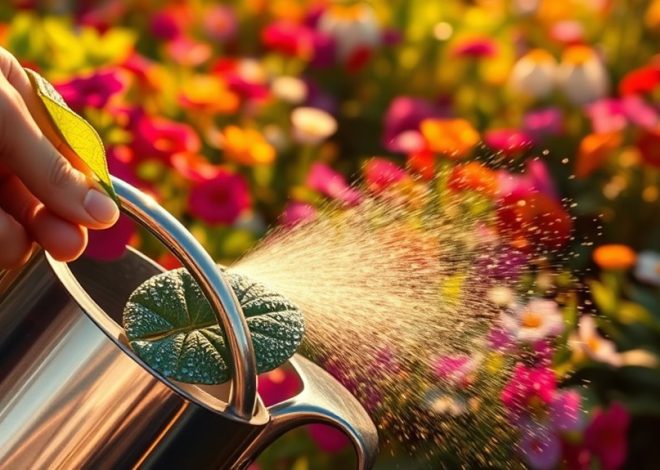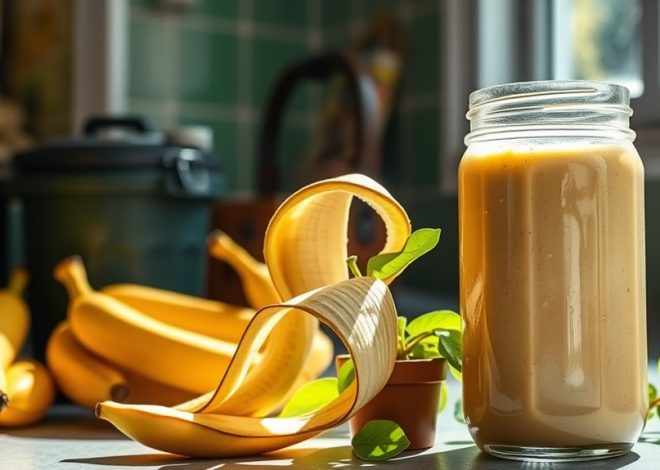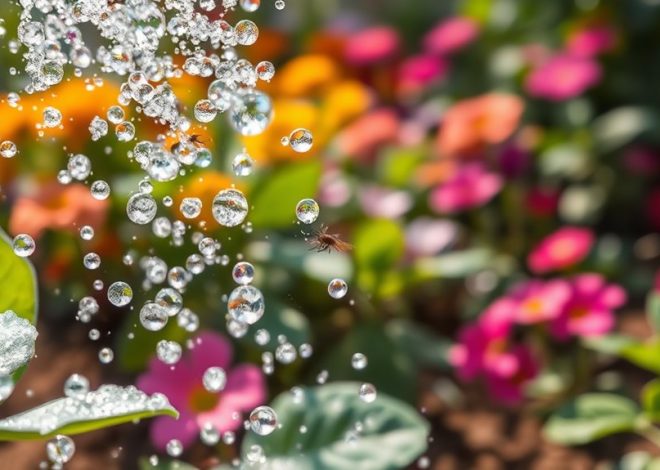
The One Compost Ingredient You’re Probably Throwing Away
The One Compost Ingredient You’re Probably Throwing Away
You might think you’re recycling kitchen scraps effectively, but there’s a common ingredient you’re likely overlooking: eggshells. These seemingly useless remnants are packed with calcium and other nutrients essential for healthy soil. By incorporating them into your compost, you can enhance its quality and even deter pests. Curious about how to make the most of this overlooked resource? Let’s explore the benefits and best practices for transforming your waste into something valuable.
Key Takeaways
- Many people discard eggshells, but they are rich in calcium and enhance soil health when added to compost.
- Citrus peels, often thrown away, provide essential nutrients and attract beneficial worms to your compost pile.
- Unbleached paper towels can contribute to the carbon content of compost, improving its overall quality.
- Coffee grounds, commonly seen as waste, are nutrient-rich and help enhance compost’s effectiveness.
- Vegetable peels, frequently discarded, are excellent compost materials that help reduce landfill waste while enriching the soil.
The Importance of Composting
Why should you care about composting? It’s one of the best compost tips you can follow for a healthier planet.
By composting, you reduce landfill waste, cut down harmful greenhouse gases, and enrich your soil naturally. This process recycles nutrients, fostering a sustainable cycle that benefits both your garden and the environment. Incorporating a surprising compost ingredient can enhance your compost quality and make your efforts even more effective. You’re not just creating fertile soil; you’re actively participating in waste management and conservation.
Every small effort counts, and your composting can significantly impact the ecosystem. Plus, it’s simple and rewarding—watching your kitchen scraps transform into nutrient-rich compost is satisfying and beneficial for future gardening endeavors.
Common Kitchen Waste Misconceptions
You might be surprised by what you consider waste in your kitchen.
Many items you toss could actually be compostable, contributing to a healthier environment and reducing landfill overflow.
Understanding these misconceptions can help you waste less and make a positive impact. For example, many people don’t realize that kitchen scraps like vegetable peels and coffee grounds are excellent compost ingredients.
Misunderstood Compostable Items
Have you ever wondered which items in your kitchen waste actually belong in your compost pile?
Many people mistakenly toss scraps like citrus peels, eggshells, or paper towels, thinking they’re not compostable.
In reality, citrus peels add valuable nutrients and appeal to worms, while eggshells provide essential calcium.
Even unbleached paper towels can break down, contributing to your compost’s carbon content.
Understanding what’s truly compostable not only reduces waste but also enriches your garden.
By reconsidering these misunderstood items, you’ll maximize your compost’s effectiveness and support a healthier ecosystem.
Don’t let misconceptions keep you from optimizing your composting efforts!
Waste Not, Want Not
Many people overlook common kitchen scraps that could significantly enhance their composting efforts.
Items like eggshells, coffee grounds, and vegetable peels are often discarded, but they’re nutrient-rich additions.
Eggs provide calcium, coffee grounds add nitrogen, and vegetable scraps contribute essential moisture.
You might think these scraps are too small to matter, but collectively, they make a big difference in your compost’s quality.
By rethinking what you toss, you not only reduce waste but also create a more effective compost.
Embrace these kitchen remnants; they’re not just trash, but valuable resources that can enrich your garden and promote sustainability.
Identifying the Hidden Gem in Your Trash
What if the key to enriching your compost lies in the very scraps you routinely toss in the trash? Many overlook kitchen waste, specifically eggshells. These often-discarded shells are rich in calcium carbonate, a vital nutrient for plant growth. By simply rinsing and crushing them before composting, you can transform your waste into a powerhouse ingredient. Not only do eggshells help balance pH levels in your compost, but they also improve soil structure. Incorporating essential ingredients like eggshells into your compost mix can significantly enhance the overall nutrient profile, leading to healthier plants.
Benefits of Adding This Ingredient to Your Compost
When you add this ingredient to your compost, you’re not just reducing waste; you’re enriching your soil with vital nutrients. This nutrient-rich addition enhances your compost’s overall quality, leading to healthier plants. Plus, it improves soil structure, promoting better drainage and root growth for your garden. Additionally, banana peels are high in potassium and phosphorus, which are essential for plant growth and can contribute to improved flowering and fruiting.
Nutrient-Rich Addition
Although you mightn’t think twice about tossing it in the trash, adding certain common kitchen scraps to your compost can significantly enhance its nutrient profile.
For instance, vegetable peels, coffee grounds, and eggshells are packed with essential nutrients like nitrogen, phosphorus, and calcium, which plants thrive on.
By incorporating these ingredients, you’re not just reducing waste; you’re creating a richer, more balanced compost that’ll lead to healthier plants.
This nutrient boost promotes vigorous growth and better yields, ultimately enriching your garden.
Don’t overlook these valuable scraps—transforming them into compost is a smart choice for both your plants and the environment.
Improves Soil Structure
Incorporating kitchen scraps like vegetable peels and coffee grounds into your compost not only boosts nutrient content but also significantly improves soil structure.
These organic materials create air pockets in the soil, enhancing aeration and drainage. As they break down, they increase the soil’s ability to retain moisture, which is crucial for plant health.
Additionally, they encourage beneficial microorganisms, promoting a thriving ecosystem.
By using these scraps, you’re not just reducing waste; you’re transforming your garden’s soil into a rich, vibrant habitat that supports robust plant growth.
How to Properly Prepare It for Composting
Have you ever wondered how to get the most out of your composting efforts?
Properly preparing this ingredient is key to enhancing your compost. Follow these steps:
- Rinse it to remove contaminants and reduce odors.
- Chop or shred into smaller pieces for faster decomposition.
- Mix with dry materials like leaves or straw for balanced carbon-nitrogen ratios.
- Store in a breathable container to prevent mold growth.
In addition, incorporating essential compost booster tips can significantly improve the nutrient content of your compost.
Tips for Maximizing Your Compost Quality
How can you ensure your compost is of the highest quality?
Start by balancing green and brown materials; greens provide nitrogen, while browns offer carbon.
Chop larger items to speed up decomposition.
Turn your pile regularly to aerate it, promoting faster breakdown and preventing odors.
Monitor moisture levels—your compost should be damp, not soggy.
Consider adding a compost activator, like the ingredient you’re throwing away, to boost microbial activity, as this secret compost booster has been known to significantly enhance garden yields.
Lastly, be patient; quality compost takes time.
Transforming Your Waste Into Nutrient-Rich Soil
What if you could turn your kitchen scraps and yard waste into a valuable resource for your garden?
Composting transforms these materials into nutrient-rich soil, fostering healthier plants and reducing landfill waste.
By doing this, you’re not just recycling; you’re improving your garden’s ecosystem.
Consider these compost ingredients:
– Fruit peels bursting with vitamins
– Coffee grounds rich in nitrogen
– Eggshells providing essential calcium
– Dried leaves adding carbon for balance



